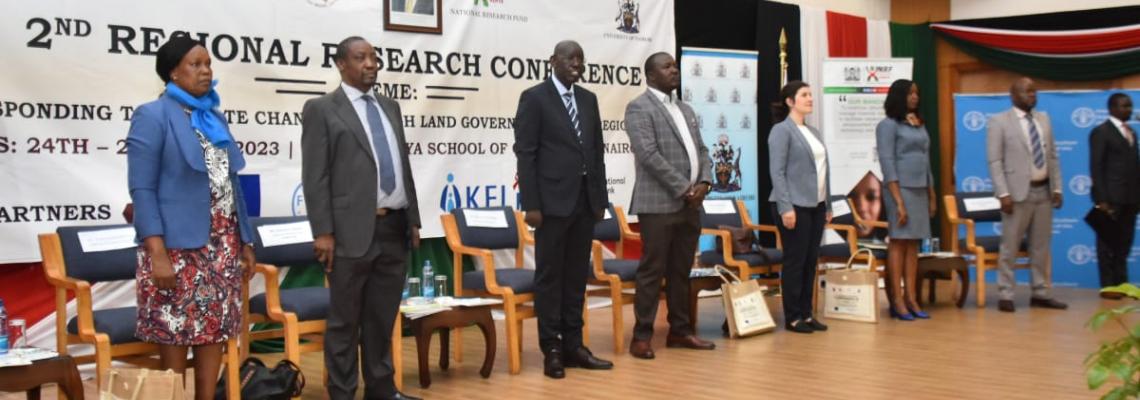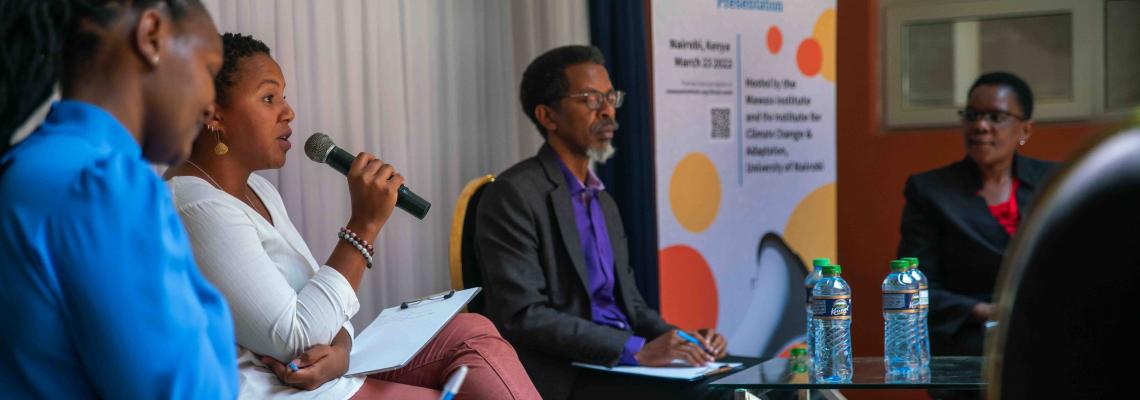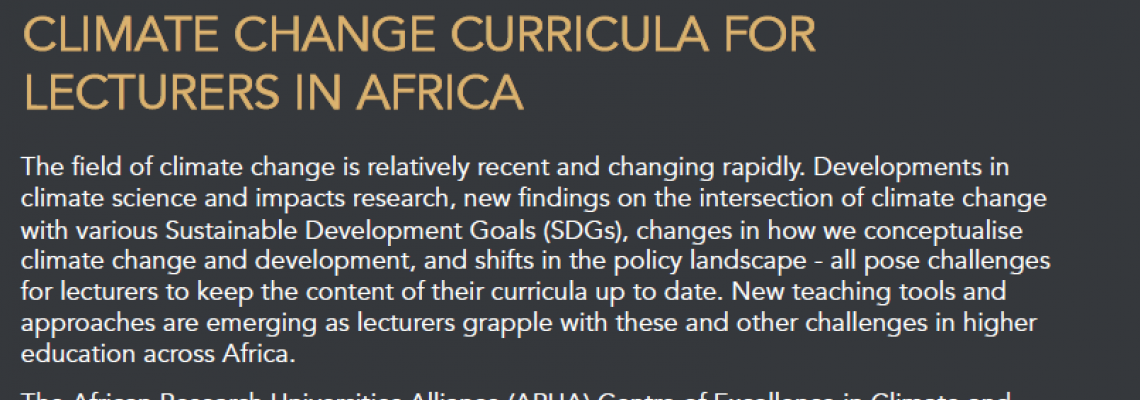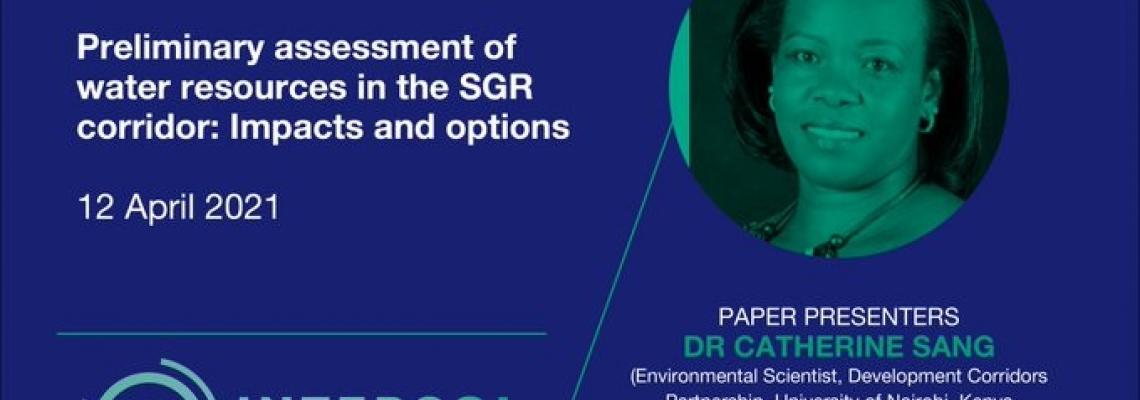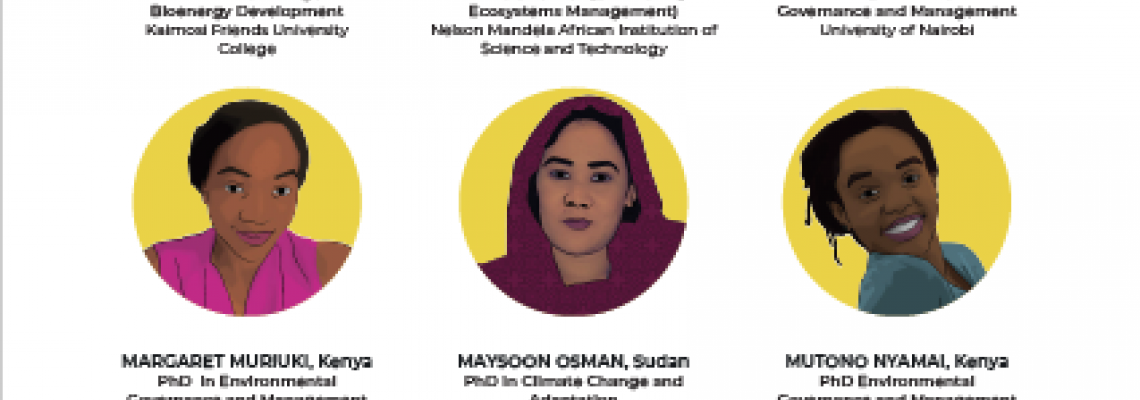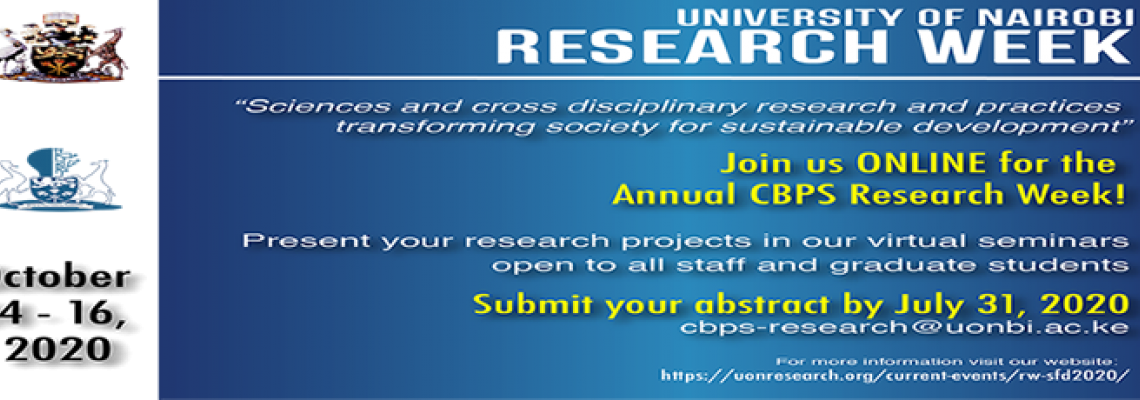ANNUAL REPORT FOR INSTITUTE FOR CLIMATE CHANGE AND ADAPTATION (ICCA) 2020 ACADEMIC YEAR.
1. A Brief Historical background of ICCA
The Institute for Climate Change and Adaptation traces its beginnings to December 2010 when a team of researchers from the University of Nairobi and Maseno University sought and received funding from the Open Society Institute to establish the Climate Change Adaptation Research Institute (CARI) at the University of Nairobi. The name was subsequently changed to what it is at present: Institute for Climate Change and Adaptation, or simply: ICCA, at the University of Nairobi.
The ICCA is unique in both its pedagogical approach and in its choice of concentration areas. Its institutional programmes are envisaged to:
- Build the human capacity needed to address climate change and adaptation that meet African societies unique needs, by offering University-based curricula for conventional degrees and short training courses for a wide range of professionals from all sectors of society;
- Encourage action-oriented research activities, including research into climate change adaptation technologies, that will help improve the climate adaptation capacity of Africa as a continent;
- Provide a framework for national and regional policy assessments and advice to governments and other public and private sector actors, and include the grassroots and various communities within the African region in its programme execution and implementation of research findings.
- Objectives of the ICCA
ICCA’s programme objectives are summarised to include the following:
- Provide formal training on Climate Change and Adaptation at postgraduate level (Masters and PhD levels initially), and later at the undergraduate level;
- Conduct professional Short courses for various climate change and adaptation actors and stakeholders in the public and private sectors including for Non-Governmental Organisations(NGOs);
- Undertake Climate Change and Adaptation research and participate in knowledge exchange with other global Climate Change actors and institutions;
- Undertake action-oriented community outreach programmes for implementation of practical climate change and adaptation options; and
- Provide research and evidence-based policy advice on Climate Change and Adaptation to governments and public sector institutions in Kenya and Africa
3. ICCA’s Institutional Mandate
The main institutional mandate of the ICCA is:
To provide Teaching and Learning; pursue related Research and Innovation as well as Consultancies and also provide Community Service.
4.Vision
The Vision is:
To be the institution of choice for innovative climate change and adaptation research and training
5. Mission
The Mission is to:
Build human capacity necessary to address the unique climate change and adaptation needs of vulnerable communities through teaching, action-oriented research, development of innovative technologies and community participation, and; to Provide expert advice for national and regional policy formulation and implementation.
6. ICCA’s Core Values
ICCA is guided by the following Core Values:
- Safeguarding the environment for posterity;
- Freedom of thought and expression in academic inquiry and other activities;
- Visionary, Innovative and creative work and leadership;
- Good corporate governance exemplified by efficiency, effectiveness, inclusiveness, transparency and accountability;
- Effective teamwork, mentorship and collaboration;
- Upholding professionalism, ethical standards and meritocracy;
- Providing unique and quality customer service;
- Nurturing responsible corporate citizenship, strong social and environmental responsibility, and;
- Embracing Information and Communication Technology in all her activities.
- Thematic Areas
The institute pursues its programmes on the basis of the following five broad thematic areas:
- Water, Environment and Ecosystems
- Climate Risk Management and Food Security
- Human Dimensions and Health
- Policy and Communications
- Technologies
8. Programmes offered
- Master of Climate Change and Adaptation (MCCA)
- PhD in Climate Change and Adaptation
- Some Flagship ICCA Research and Community Projects.
- REACH Project- PI, Professor Daniel Olago (https://reachwater.org.uk/).
- BRECcIA Project- PI, Dr. Gilbert Ouma (http://www.gcrf-breccia.com/).
- Development Corridors Partnership- PI, Professor Daniel Olago (https://developmentcorridors.org/).
- African Great Lakes Information Platform (AGLI) Project – PI, Professor Daniel Olago (https://www.africangreatlakesinform.org/).
- TSITICA (ARUA) Project – Co-PI, Dr. George Outa (https://arua-cd.org/).
- Science and Policy Interface Programme: Dan Olago and George Outa
10. Snapshot of Institutional Achievements
ICCA is meeting its core mission, supported by a strong academic programs and founding academic staff who are committed to its mission of aiming to further improvements in organizational performance and student success.
The strongly embedded ‘Transdisciplinary Approach’ to learning and education has ensured adoption and acceptability by both students, researchers and community stakeholders. Students from many parts of the world have not only enrolled at ICCA but are accessing world-class education through the early embrace of the ICT platforms by ICCA staff to counter the challenges that are being experienced due to COVID 19.
ICCA maintains a strong and rigorous academic culture that provide students with the knowledge, skills, and competencies needed to further their careers way beyond the academia. Our graduates are able to find employment in the National Government, County Governments, teaching and research institutions, Non-Governmental Organisations, business and in self-
employment. Since inception a total of 143 Masters and 186 PhD students have enrolled a reflection of the popularity of the program.
Our Sustainability Initiatives encompass economic, environmental and social equity principles, and a myriad of activities, projects and practices across the campus and in the community. Through this holistic approach ICCA has made sustainability a focused effort of its training;
ICCA is contributing immensely to the revenue kitty of the University of Nairobi in both fees and research grants. In 2020/2021 academic year the institute was able to raise Kshs 6,732000 in fees and 36,000,000 in research grants. Since inception, the institute has attracted more than Kshs 100 million in terms of research grants.
11.Staff portfolio
The ICCA was established with the positions of the Director, Three Co-coordinators and Administrative Staff.
The ICCA has an academic staff establishment of six comprising Professor, Associate Professor, Senior Lecturer, Lecturer and two Tutorial Fellows.
12.Strategic issues
Teaching and learning, the primary objective of the University is teaching and learning. So is also the first objective of the Institute. The Institute builds competently trained and enabled postgraduate students who are capable of competing at an international level. Above all the graduates will be trained to work in any environment of the society, they will be society leaders in moulding and shaping a future where human activities have threatened the planet. A future that is seeing resources quickly being depleted through unsustainable lifestyles.
13. Any other pertinent issues
2020 is the year that saw the Institute bid farewell to the founding Director, Prof. Shem Wandiga, a stellar academic and a pioneer in the nexus between environmental studies and chemistry. The Institute is now in the capable hands of Prof Daniel Olago, a leading researcher in the field of Earth Sciences. We wish Prof. Wandiga the best in his future endeavours.

